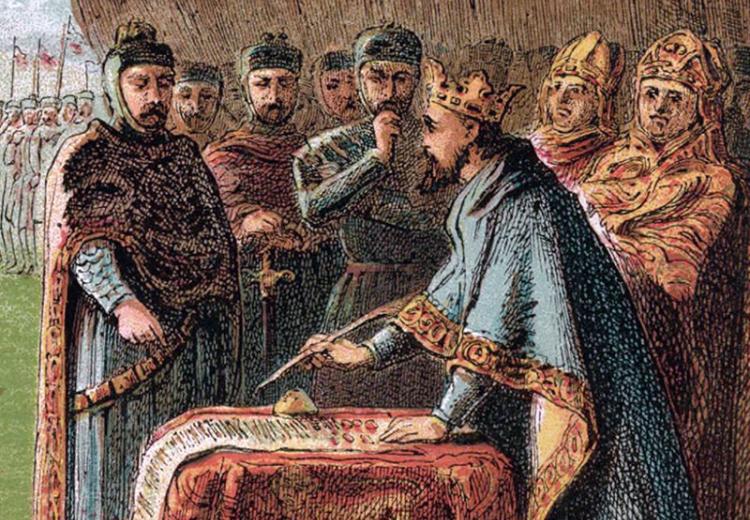Magna Carta: Cornerstone of the U.S. Constitution

King John of England signs the Magna Carta.
"We will sell to no man, we will not deny or defer to any man either justice or right."
—Magna Carta (1225)
The "Great Charter" drawn up on the field at Runnymede on June 15, 1215 between King John and his feudal barons failed to resolve the crisis that had been brewing in England ever since the death of John's brother King Richard I. Over the long term, however, Magna Carta served to lay the foundation for the evolution of parliamentary government and subsequent declarations of rights in Great Britain and the United States. In attempting to establish checks on the king's powers, this document asserted the right of "due process" of law. By the end of the 13th century, it provided the basis for the idea of a "higher law," one that could not be altered either by executive mandate or legislative acts. This concept, embraced by the leaders of the American Revolution, is embedded in the supremacy clause of the United States Constitution and enforced by the Supreme Court.
Guiding Questions
In what respects did the Magna Carta provide justification for American independence from Great Britain?
To what extent were the principles and provisions of the Great Charter incorporated into the U.S. Constitution?
Learning Objectives
Explain what is meant by the rule of law and why it is necessary in a free and democratic society.
Explain what is meant by higher law and the relationship between Magna Carta and the evolution of constitutional government.
Describe the role of Magna Carta in shaping the thinking of American colonists and explain how this document was used to justify independence from Great Britain.
Define the concept of due process of law, list the constitutional provisions that guarantee due process, and explain their importance in assuring a just society.
